Understanding the Need for Individual Dog Crates
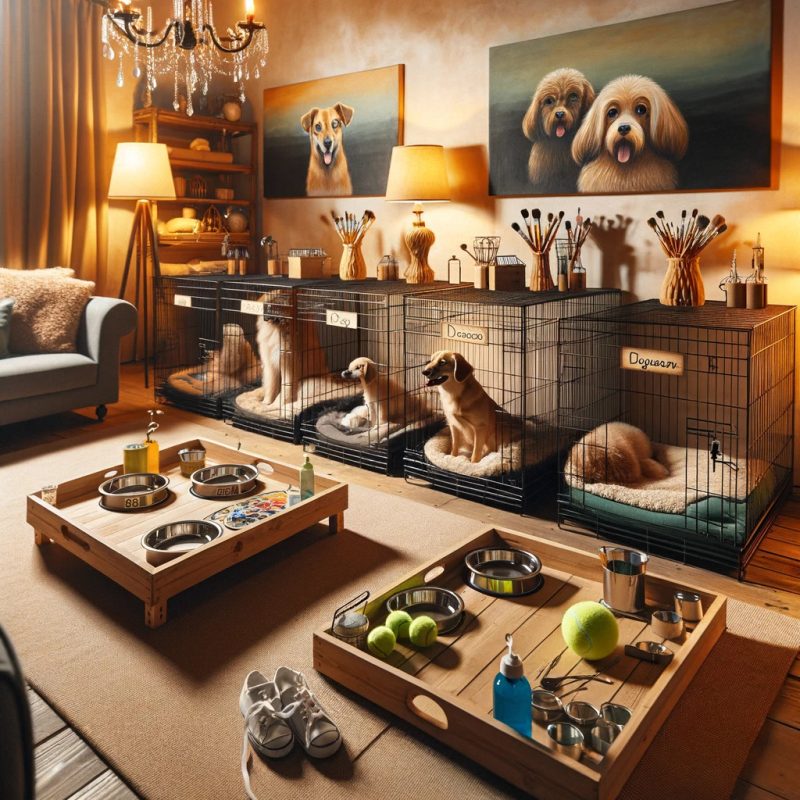
A common dilemma faced by multi-dog households is whether each furry member needs an individual crate.
One of our readers, who owns several dogs, recently brought up this question.
Despite being house trained and displaying a certain indifference towards crate ownership, a concerning behavior by her older dog, involving marking territory inside the house, has raised doubts.
This scenario prompts a critical inquiry: Is it necessary for each dog to have a private crate?
The Canine Psychology Behind Crating
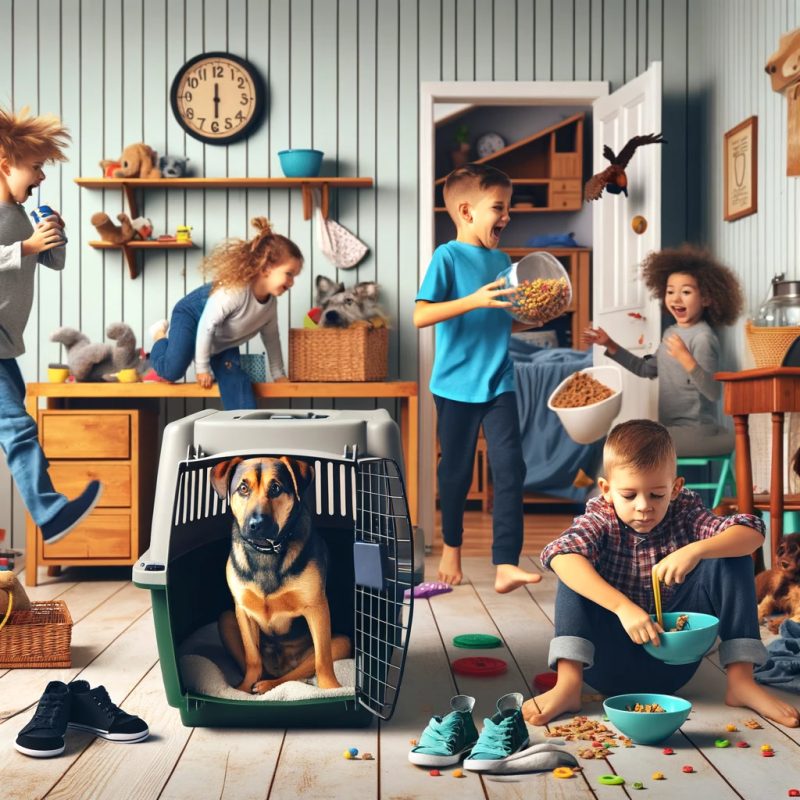
Dogs, known for their intelligence and adaptability, often show intriguing behaviors regarding their personal space.
In my home, I have two dogs, each with their own crate.
While they are free to roam during the day, these crates become their retreats when we’re out.
Interestingly, I’ve noticed a preference in my male dog for the female dog’s crate, though she doesn’t seem to mind.
This leads us to wonder, do dogs, like humans, desire their individual space?
Personal Space: A Canine Requirement
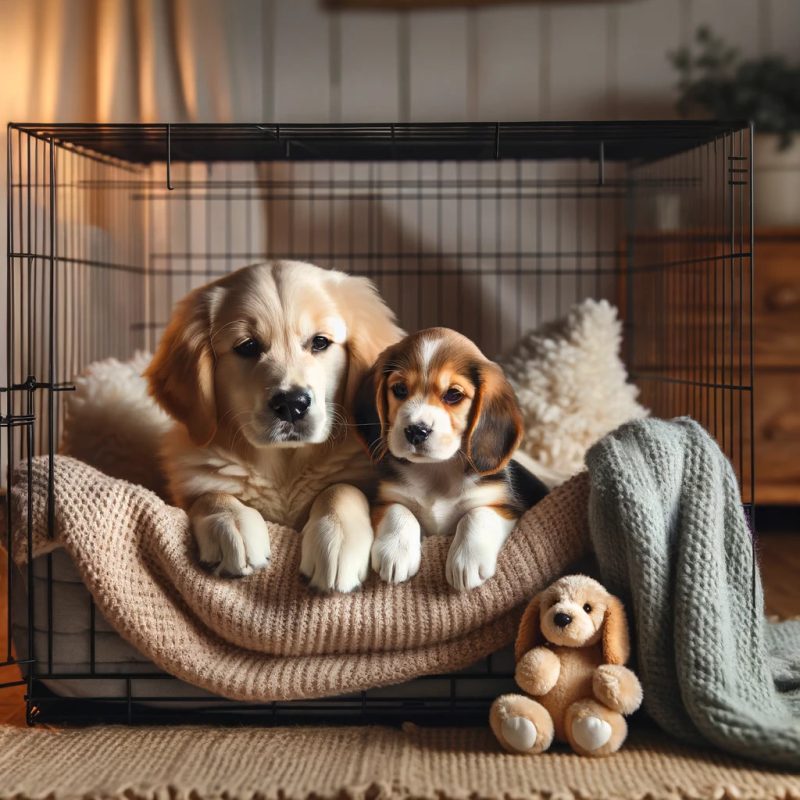
The concept of personal space applies to dogs as much as it does to humans.
While they may love cuddling with us, having a dedicated space, especially when it comes to crates, is beneficial.
My own dog, Lola, recognizes the cue of me wearing shoes as her signal to retreat to her crate.
Her canine companion, however, anticipates a treat before willingly entering his.
This individualized behavior underscores the importance of each dog having its own designated crate.
Comfort in Familiarity: The Importance of a Personal Crate
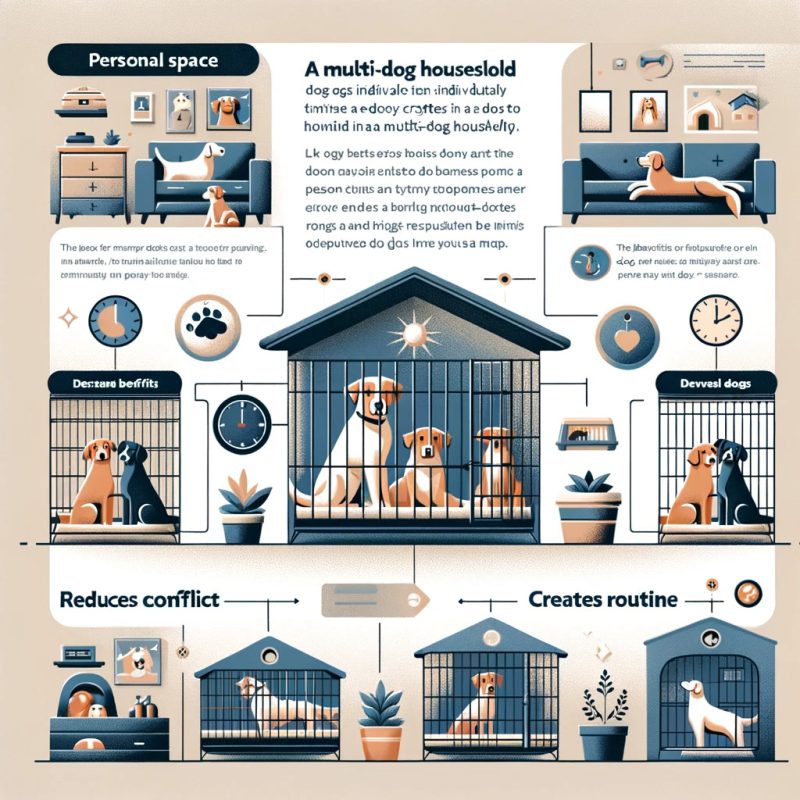
Reflect on the comfort you seek in your bed, especially when away from home.
The familiarity and comfort of our own bed are unparalleled.
This sentiment can be analogous to dogs and their crates.
They might explore different spots, but ultimately, the familiarity of their own crate offers a unique sense of security and comfort.
Practical Benefits of Individual Crates in a Household
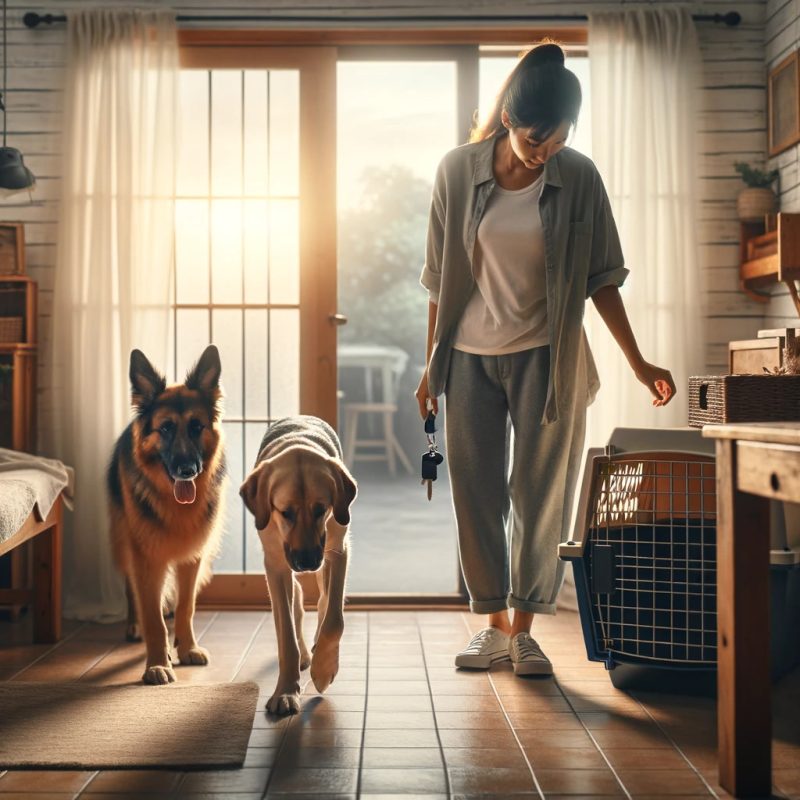
Having separate crates for each dog simplifies many routine challenges.
Imagine a morning rush with kids and dogs, compounded by the dogs squabbling over a shared crate.
Assigning each dog its crate circumvents such conflicts, streamlining your departure process.
While it doesn’t solve the elusive hunt for matching socks, it certainly eases one aspect of the morning chaos.
Tailored Crating Strategies: When Sharing a Crate Makes Sense
Despite advocating for individual crates, there are exceptions.
Puppies raised and adopted together might be more comfortable sharing a larger crate, especially if separation causes distress.
In such cases, it’s advisable to maintain the status quo rather than introducing unnecessary stress.
Conclusion: To Crate or Not to Crate Each Dog Individually?
In conclusion, assigning individual crates to each dog in a multi-dog household is generally a wise decision.
It not only caters to the natural desire for personal space but also ensures a smoother daily routine.
Exceptions exist, particularly with closely bonded puppies, but in most cases, personal crates promote harmony and ease in managing a household with multiple dogs.

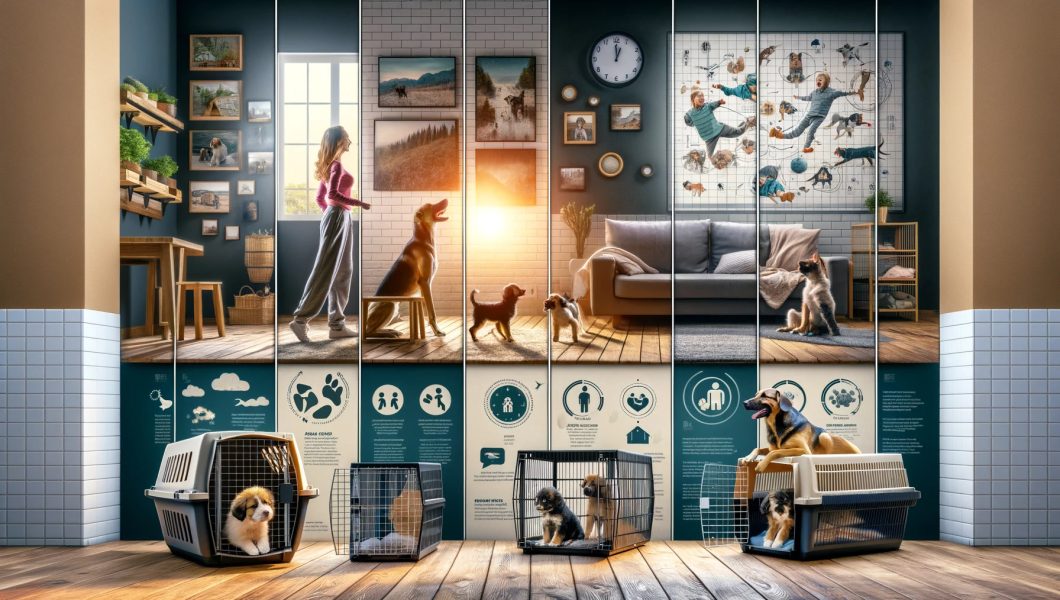




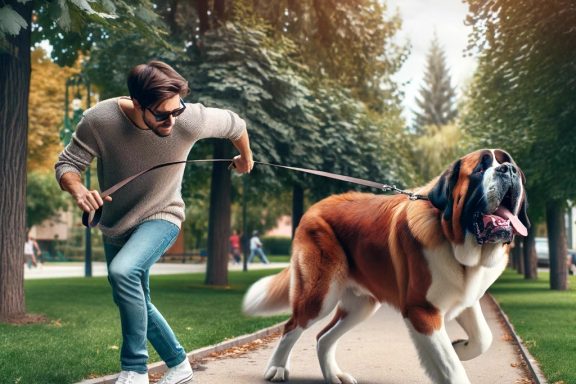
No Comments